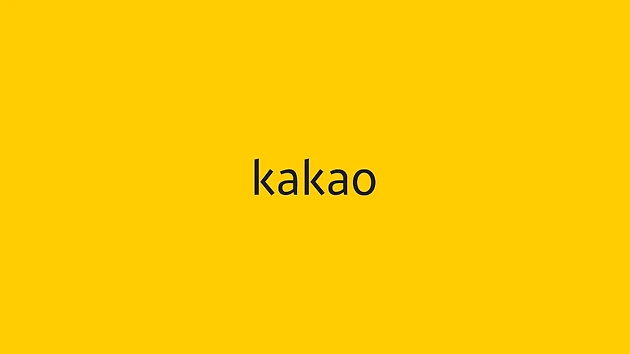Kakao’s Principles to Counter Hate Speech
Kakao is making efforts to find the right Corporate Digital Responsibility (CDR) action plan that can help fulfill our vision to ‘create a better world with technology and people’.
An international consensus has been reached on the need for response measures to online hate speech, which has become a major social issue. As a responsible member of society, Kakao has established principles to counter hate speech in order to create a healthier digital space.
Establishing Online Hate Speech Principles is an ESG Activity Specific to Digital Companies.
Kakao continues to execute ESG activities that are specific to digital companies as part of our effort to resolve issues that arise in the digital environment. Kakao is the first company in Korea to establish and implement a corporate principle to stop hate speech.
※ ESG: “Environment”, “Social”, “Governance” are factors companies are required to apply responsibly and on which they are assessed by.
Kakao’s Principles to Counter Online Hate Speech
Kakao dreams of creating a better world by connecting technology and people. Kakao strives to protect our users’ freedom of speech to ensure more unrestricted and diverse connections.
Protecting our users’ rights is another one of Kakao’s important responsibilities. Kakao is vigilant against speech that abuses the freedom of speech and threatens other people’s safety.
Kakao is devoted to stopping online hate speech. We would like to ask for your interest and participation, so that we can fully execute Kakao’s response plan to stop hate speech and create a safer digital environment for everyone.
1. Kakao objects to the discrimination, promotion of stereotypes, unilateral insults or ostracism of specific individuals due to their place of origin (country, region), race, appearance, disability, illness, socio-economic situation, status, religion, age, gender, sexual identity, sexual preference and other identity-related factors.
2. Kakao defines speech that attacks specific individuals or groups, based on the above discriminations, as hate speech. Hate speech not only threatens user’s emotional security, but also triggers social ostracism and physical violence. Hate speech not only restricts users’ freedom of speech, but impedes the confidence and health of our society. Kakao will resolutely respond to hate speech that violates human rights and dignity, and threatens the safety of other individuals.
3. Users must be cautious about speech that incites violence about a specific person or group, or violates human dignity, in public spaces within Kakao services. Users can still freely express opinions about their beliefs or public policies, as long as they don’t threaten the safety and dignity of others.
4. Kakao will continue to make advancements in our policies, technology, service planning and design to stop hate speech. We will also provide employee training and strengthen monitoring to stay vigilant about discrimination and hate speech from inside the company.
The above policies are limited to posts that are made public. Kakao’s utmost priority is to respect users’ privacy in personalized services, including private conversations in KakaoTalk, and Mail and Talk Drive, as well as private community posts.
Kakao strives to create an environment where all users can exercise their freedom of speech safely. We would like to ask for our users’ active participation in creating a digital space that is safe for everyone.
Experts from the public and private sectors and academia, including the Kakao Media Advisory Committee, experts from civil society, the National Human Rights Commission of Korea and the Korean Society for Media, Law, Ethics and Policy Research, all helped develop the principles.
Our goal was not to solve issues from a company’s perspective, but to come up with sincere solutions from the perspective of society. The process was not easy, but Kakao was able to complete and release the principles with advice from various experts.
Kakao will continue to make further development on related policies with input from experts from various sectors, as well as interested parties.
Deliberation Process to Establish Principles
While hate speech rarely results in extreme violence, as is sometimes seen overseas, a large number of discriminatory, hateful and abhorrent online hate speech aimed at specific groups is still found on the Korean internet. The demand from society for companies to aggressively tackle these issues continues to increase.
However, rushing to implement a policy is not the best solution. Users’ freedom of expression may be restricted if companies intervene too quickly. This is why Kakao took extreme care into establishing principles to counter hate speech.
※ Terminology: Why the Korean word "chŭng-o (증오)" was used instead of "hyeomo (혐오)"
- The Korean word usually used to describe "hate" in "hate speech" is "hyeomo". However, Kakao has decided to use the Korean word "chŭng-o" instead, due to the following reasons;
- Two Korean words, "chŭng-o" and "hyeomo" can both be translated to “hate”. However, the word "hyeomo" includes emotions such as “to avoid due to hatred.” Such emotions definitely contain intentional violence against a specific target. The malignity of a specific action must be apparent in order to manage and take proper measures against the action. There must also be a need and feasibility for restrictions. Kakao put all of this into consideration and defined hate speech as “an action that imposes excessive verbal abuse against a specific group with a discriminatory perception,” and used the Korean word "chŭng-o", which is more sans emotion, instead of "hyeomo".
- Academic discussions on how to correctly translate the word "hate speech" into the Korean language is still ongoing. However, Kakao chose to use the word "chŭng-o" instead of "hyeomo" because we believed it was more urgent to resolve the violence that is being imposed against specific groups of society.
Establishing principles with expert advice
Kakao started internal discussions about hate speech in January 2020 and reached a conclusion that external advice from experts in various fields were needed to effectively tackle the issue of hate speech.
In March, the Kakao Media Advisory Committee was asked to participate in the overall deliberation process to establish principles to counter hate speech. The Media Advisory Committee, which is comprised of media experts, has since been present throughout the entire discussion. The Media Advisory Committee participated in regular meetings to discuss how to proceed with deliberation, determine policy directions and talk about internal research results. The Committee also participated in the civil society expert roundtable in October, and reviewed the initial draft of the
Kakao conducted an academic research with the National Human Rights Commission of Korea and the Korean Society for Media Law, Ethics and Policy Research in order to find a definition for hate speech and set a direction for related policies. A research team was formed in June and the research staff was selected and finalized in August. An interim report was released to the public on September 22 through a seminar.
An initial draft of the principles, which were based on findings from the previous processes, was announced in November. Kakao created the initial draft, and Committee advisors and roundtable participants exchanged and gathered opinions from the end of November to early December to finalize the principles that are announced here. Additional details on the principle establishment process can be found in the
How are the principles applied?
The newly established principles will be applied to Kakao’s services and technologies. The principles were first applied to the amended Clause 15 of ‘Activities prohibited in Service Use’ in the Operation Policy on January 13, 2021. The notice for the amended Operation Policy can be found here.
- Previous version: Posting any content that discriminates or instigates prejudice due to reasons that include an individual’s region, disability, race, place of origin, gender, age, occupation, religion and other factors
- Amended version: Posting any content that violates human dignity, incites violence, and instigates discrimination or prejudice due to reasons that include an individual's place of origin (including country and region), race, appearance, disability or illness, gender, gender identity, sexual orientation, and other factors associated with an individual's identity
Internally, Kakao will find ways to achieve our goal of eradicating hate speech.
However, the participation of Kakao service users is vital for us to reach our final goal of creating a healthy online environment.
We ask our users to join us in our efforts to counter hate speech so that our principles can lead to actual positive results.
Kakao Hate Speech Response Policy Green Paper: A record of the deliberation process to establish principles
The green paper is a report of the deliberation process used to create our principles to counter hate speech in addition to our research results. At Kakao, we believed that we would be able to raise social awareness for hate speech issues and reach a wider consensus on the need to counter hate speech by sharing details about the process used to gather opinions from various parties of interest.
Before full-fledged discussions begin, the issue at hand is analyzed from various angles and is provided to participants in the form of a document known as a “green paper”. Kakao decided to call the report that contains the principle establishment process a “green paper” because we want to use our recently announced principles to further initiate full-scale discussions on hate speech.
The Kakao Hate Speech Response Policy Green Paper can be downloaded here.
- Press Release 발행일 2025.08.07 Kakao Reports Record-High Q2 2025 Revenue of ₩2,028.3B and Operating Profit of ₩185.9B
 #kakao#Q2 2025
#kakao#Q2 2025 - Communication Worry-Free Messaging
With Talk Cloud #Backup#Cloud#Data Storage#Talk Data
#Backup#Cloud#Data Storage#Talk Data

